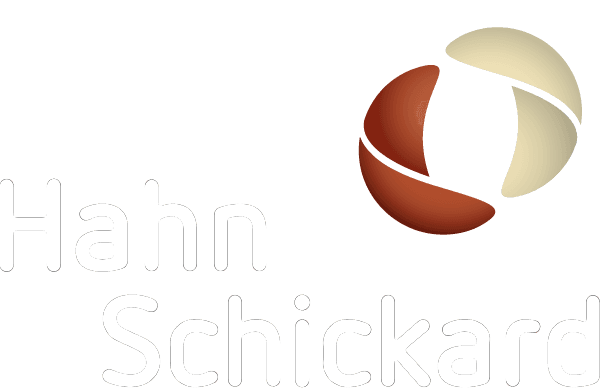About us
Our multidisciplinary team of experts in quantum technologies, outreach and innovation is dedicated and passionate about pushing the boundaries of quantum technology and exploring its applications.
Unsere Partner

re:edu
Reedu GmbH & Co. KG is a start-up from Münster and emerged from the BMBF-funded senseBox project. senseBox project funded by the BMBF. re:edu is the manufacturer of the senseBox, a microcontroller for collecting environmental data. The company's focus is on open sensor systems for end consumers and the education market. The combination of open source components open source components to create a wide range of products (software and hardware) for citizens, students and pupils, students and pupils that enable them to participate in problem-solving processes with social relevance (Citizen Science). The company's expertise in the development of prototypes, driver and accompanying software for IoT products products and effective educational solutions, particularly for the STEM sector. In addition, re:edu has expertise in the development of educational materials and the organisation organising events such as workshops or training courses for various groups, particularly especially for learners and teachers.

Institut für Mikroaufbautechnik
The Institute of Micro Packaging Technology at the Hahn-Schickard-Gesellschaft für angewandte Forschung e.V. in Stuttgart has been working in the field of microintegration of complex, three-dimensional systems with a high degree of miniaturisation for more than 20 years. Its core competences lie in technologies for spatial circuit carriers and microstructures as well as in assembly and connection technology, which is used in particular for the seamless integration of sensors in demanding environmental conditions. Hahn-Schickard is working on fundamental issues relating to the encapsulation of miniaturised quantum sensor assemblies and the simulation-based thermal management of NV-based magnetic field sensors in two research projects as part of the BMBF's QSens future cluster. In the QOOOL Sensing project, Hahn-Schickard will develop and build the quantum sensor module at the heart of the QOOOL kit, thus contributing its expertise in the field of sensor technology.

Institut für Intelligente Sensorik und Theoretische Elektrotechnik
The Institute for Intelligent Sensors and Theoretical Electrical Engineering (IIS) is involved in the research and practical implementation of new sensor concepts. In addition to improving classical sensors, the IIS focuses on researching new, miniaturised excitation and readout concepts for various quantum sensors. After many years of experience in the miniaturisation of classical nuclear and electron spin resonance, the institute has been working for several years on CMOS-integrated microwave excitation concepts (CMOS = Complementary Metal-Oxide-Semiconductor as a technology for the construction of electronic circuits in integrated circuits) as well as (CMOS-integrated) ultra-low noise current readout circuits for solid-state quantum sensors such as NV centres and silicon sensors. e.g. NV centres and silicon defects in SiC (= silicon carbide, a chemical compound of silicon and carbon). In the area of education and training, the IIS is responsible for training in the subjects of electrodynamics and sensor and measurement technology in the electrical engineering degree programmes. The IIS also supervises the "Build your own MRI" practical course, in which students design their own MRI device.
Assoziierte Partner

Lernort Labor
LernortLabor - Bundesverband der Schülerlabore e.V. (LeLa) sees itself as an umbrella organisation for school laboratories in German-speaking Europe. As the interface between school laboratories and politics, business and science, LeLa promotes the expansion of the network as a firm pillar of the education system. The most important goal is to strengthen the network of school laboratories and to disseminate and further develop the special teaching and learning culture of school laboratories: independent, exploratory, research-based learning. From careers guidance to science communication, the more than 500 school labs registered with LeLa cover a wide range of topics, reaching more than 1,300,000 children and young people every year.

MExLab ExperiMINTe
The MExLab ExperiMINTe student laboratory at the University of Münster is establishing itself as a central extracurricular learning location that inspires children and young people for the STEM subjects. In the QOOOL Sensing project, the MExLab ExperiMINTe focuses on inspiring these target groups for the world of quantum sensors by providing and piloting innovative teaching materials. In collaboration with project participants, the student laboratory develops concepts and materials that are used in workshops and blended learning programs. These offers promote a deep understanding of the application and functionality of modern technologies. In addition, the MExLab ExperiMINTe serves as a central point of contact in science education and uses digital platforms to disseminate OER materials and make the project results accessible to a wider audience.

QSens
QSens is dedicated to the development of quantum sensors, a novel technology in the field of metrology and sensor technology that has a sensitivity on the edge of what is theoretically possible. This new type of sensor can be used, for example, in medical technology, autonomous navigation and renewable energies. Quantum sensor technology is still in its infancy. Promising prototypes have been tested in the first successful feasibility studies, and this is precisely where QSens comes in: Based on the results of basic research, the Future Cluster finalist is working on the field in an interdisciplinary manner with partners from the natural sciences, engineering and industry.